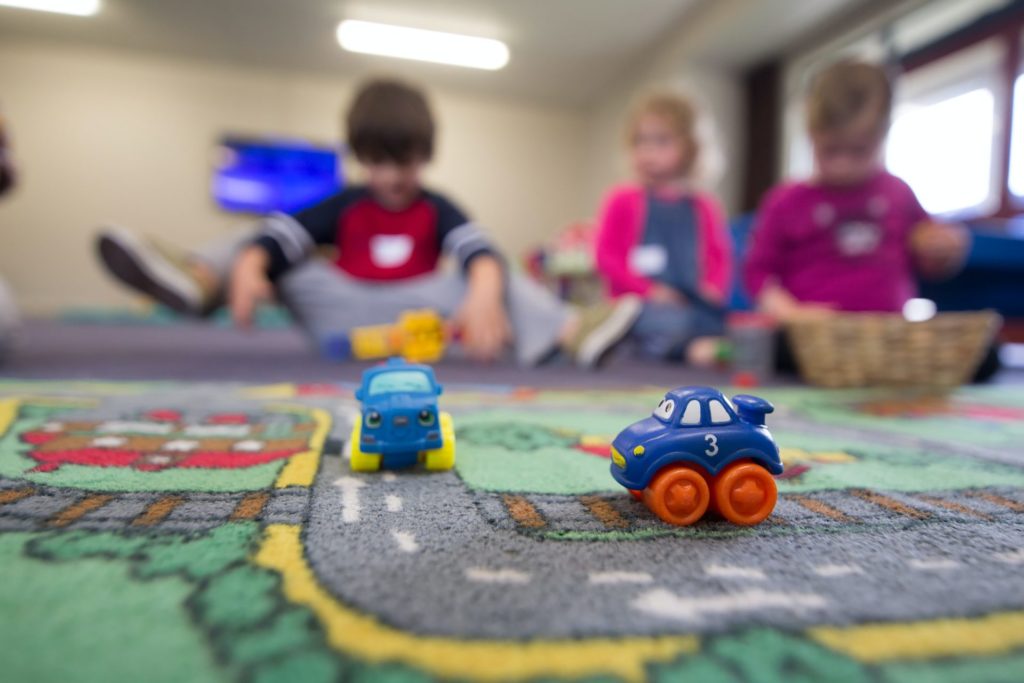Those who work in childcare have a 70% greater chance of being infected with the coronavirus than the average worker, according to research conducted by Professor of Occupational Medicine Lode Godderis (KU Leuven).
In the first two weeks of December, an average of 1,980 people per 100,000 were infected in the general population, reports De Morgen, but in sectors where there’s a lot of contact with young people and children, that figure is much higher.
In day-care centres and nurseries, there are 3,310 cases per 100,000 people. The incidence is 70% higher than in the average working population.
An already beleaguered sector
“We are now extra confronted with the fact that this has been a bottleneck sector for a very long time,” said Nele Wouters, spokesperson for Kind en Gezin, referring to how staff shortages due to illness are affecting parents’ ability to find care for their children.
The Flemish government is responding with subsidies for CO2 meters and self-tests.
“The infection rates in childcare are astounding,” said Celia Groothedde (Groen), Flemish Member of Parliament.
“For months now, I have been seeing the infections and staff cuts in childcare swell, and I am proposing an emergency plan to the Flemish government. Our childcare is being neglected. The standards – 8 to 9 babies per person on average – are among the lowest in Europe, exhaust child carers and are bad for the children.”
Losing staff
A brief questionnaire revealed that there are indeed many childcare providers who are at their wits' end.
“Colleagues drop out because they themselves are ill, have to go into quarantine, or are burnt out,” said one person, who prefers to remain anonymous.
Many crèches reported that a lot of their staff are transitioning into teaching jobs. Those who remain are not only confronted with a high number of children to care for, but parents who deliberately disguise their sick children’s symptoms using suppositories or even antibiotics, just to avoid having to keep them home.
Ventilation is key
Virologist Marc Van Ranst emphasised the importance of ventilation in the group and sleeping rooms, which is certainly not optimal everywhere. “Sometimes the problems are structural, or the ventilation equipment is not used enough because of the cost in the heating season,” said Van Ranst.
Childcare is certainly not the only sector that scores high in terms of infections: second place goes to secondary education. But while the debate about CO2 meters or air cleaners in the classrooms has been going on for months, that debate has been much less intense in the nurseries recently.
“CO2 meters are not yet in every crèche and natural ventilation is often underused because they find drafts and the cold annoying,” said Van Ranst. “Air cleaners are still hardly to be found in nurseries. Yet they could be part of the solution.”
Related News
- Covid-19 infections, hospitalisations and deaths continue to decline
- Cultural sector to appeal against new restrictions
- Omicron now responsible for 60% of infections in Belgium
Flemish Minister of Welfare and Public Health Wouter Beke (CD&V) agreed: “The organisers of childcare will receive a lump-sum subsidy to install CO2 meters and buy self-tests."
“Additionally, we are also taking many measures to reduce the number of vacancies. Finally, we will compensate the lost income in case of absences due to quarantine or infection, so that the facilities do not suffer any loss of income.”

